IFC works up Vietnam’s appetite for food safety standards
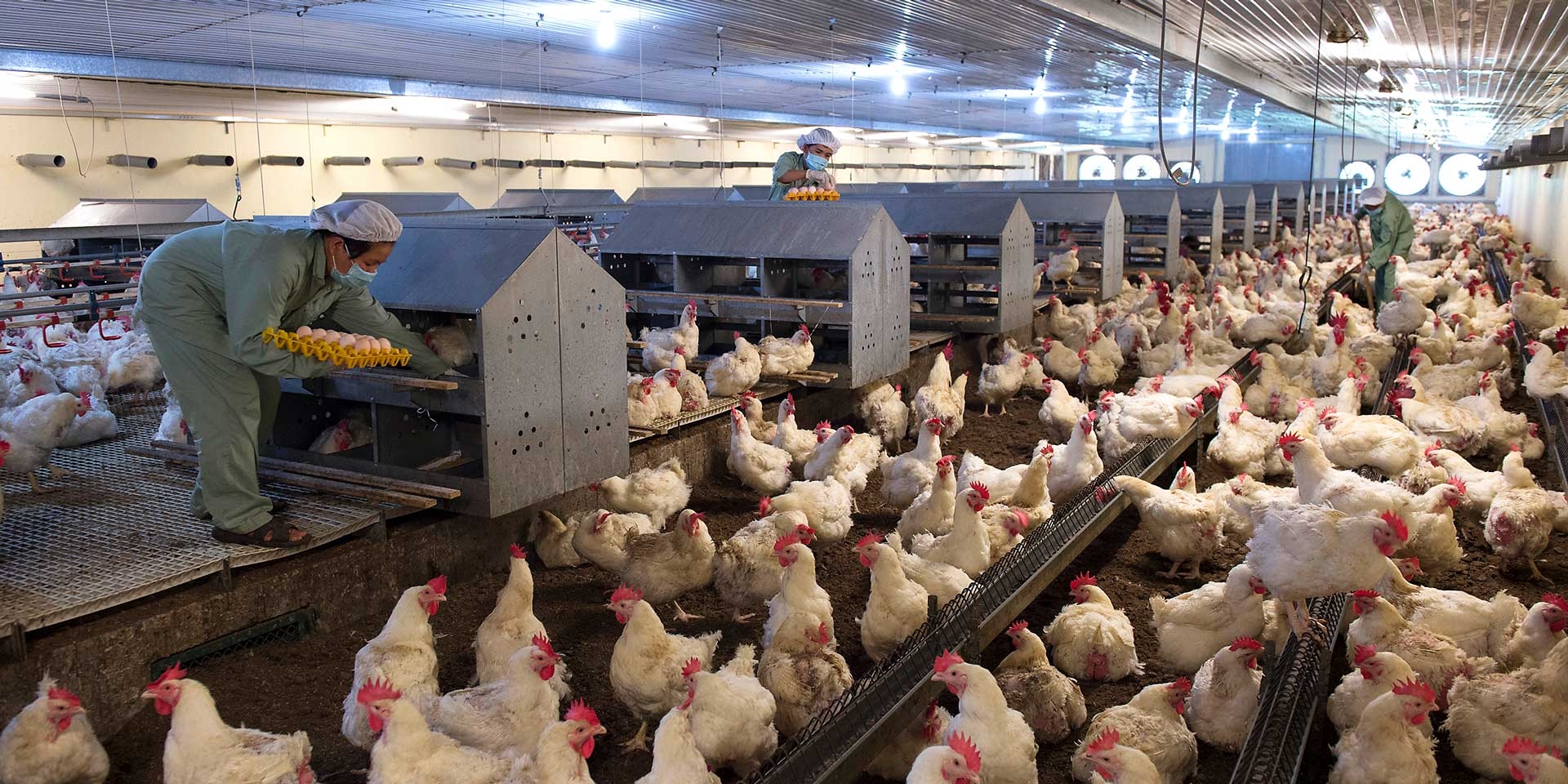 |
| A Vietnamese poultry farm in IFC's food safety programme |
It is obvious that Vietnam is suffering from a food safety nightmare. Local food processors frequently come under attack for their poor hygiene practices and blatant use of toxic chemicals or preservatives, while 90 million consumers fret about catching terminal diseases from unclean food. In the most recent scandals, coffee was found to be made from electric battery and prawn was injected with deadly insecticide.
Besides health consequences, these scandals are holding back Vietnam’s economic growth and its goal of becoming the world’s top exporter of food products. A recent World Bank report estimated that Vietnam loses $700 million each year in productivity due to its contaminated food.
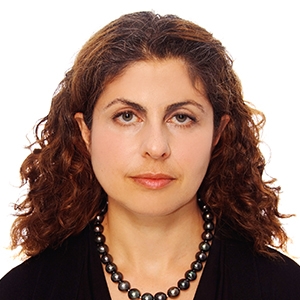 |
| IFC' Rana Karadsheh discussed food safety in Vietnam |
Rana Karadsheh said that the IFC is collaborating with different partners to promote sustainability practices in Vietnam. The goal is to show manufacturers and investors that food safety standards make good business sense, besides being the right thing to do. According to Karadsheh, safe food can improve efficiency, lower operating costs, increase sales, and open up new markets for businesses.
“Vietnamese consumers are now demanding it, so to tap into these markets and sell products to these consumers, firms in Vietnam will need to invest in food safety and focus on the longer term,” said Karadsheh. The IFC director added that as Vietnam becomes a middle-class country and consumers grow more aware of food safety, the only way to go ahead for food producers is improving their standards.
Moreover, Karadsheh emphasised that business reputation takes a long time to build and seconds to collapse, which explains why China is still haunted by its food safety scandals several years after these incidents took place.
Over the next three years, in partnership with New Zealand and the Republic of Slovakia, the IFC will work with Vietnamese agricultural firms and their supply chains to improve food safety and achieve internationally-recognised certifications. By installing modern food safety management systems, the project can expect a total sales increase of $30 million from up to five participating firms.
Additionally, the financing that these firms can access is likely to increase by $25 million within a year after project completion.
Most recently, IFC held its 7th annual food safety forum in Ho Chi Minh City, gathering global experts to share experiences from instilling a food safety culture in Vietnam, as well as promoting stronger standards across food supply chains.
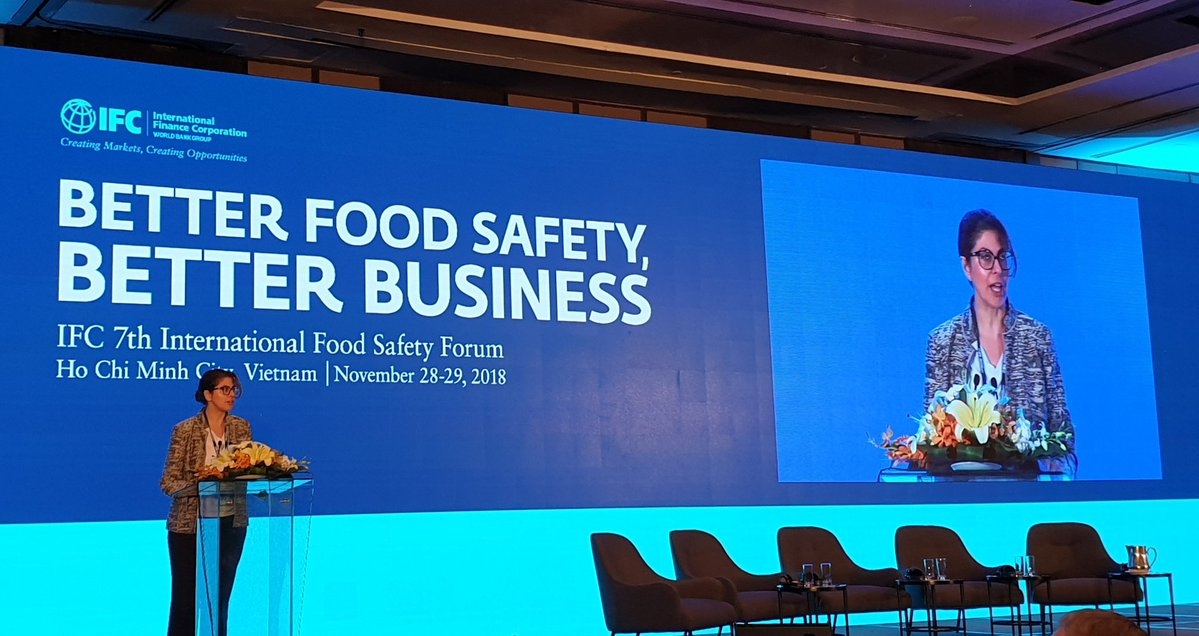 |
| The 7th annual IFC forum on food safety took place in Ho Chi Minh City |
Rana Karadsheh told VIR that the big challenge is convincing millions of small farmers in Vietnam to think long-term and invest in hygiene and food safety. By partnering up with industry specialists and sharing risks together, IFC also helps Vietnamese banks overcome their fear of lending to agricultural businesses.
“We will continue to raise awareness, engage in more advisory services, and ultimately put capital in potential companies. There is a big opportunity in Vietnam, and besides providing capital, we want to become partners of Vietnamese agricultural firms and offer them help in growing a sustainable business,” said the IFC representative.
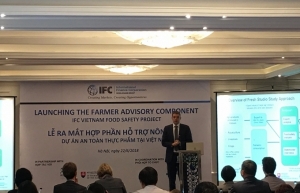 | Food safety investment to boost agricultural exports Investment in food safety can help Vietnam secure its $40 billion agriproduct export target in 2018, and with a project implemented to enhance food safety, ... |
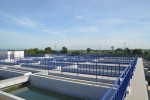 | IFC invests in DNP Water for better access to water in Vietnam IFC, a member of the World Bank Group, has secured a convertible loan of $15.3 million for DNP Water JSC, a subsidiary of Dong Nai ... |
 | IFC joins ABBank to support lending to small businesses and women-owned SMEs IFC and Goldman Sachs 10,000 Women has announced a syndicated senior loan of $110 million to Vietnam’s An Binh Commercial Joint Stock Bank in a ... |
What the stars mean:
★ Poor ★ ★ Promising ★★★ Good ★★★★ Very good ★★★★★ Exceptional
Related Contents
Latest News
More News
- Ho Chi Minh City launches plan for innovation and digital transformation (February 25, 2026 | 09:00)
- Vietnam sets ambitious dairy growth targets (February 24, 2026 | 18:00)
- Masan Consumer names new deputy CEO to drive foods and beverages growth (February 23, 2026 | 20:52)
- Myriad risks ahead, but ones Vietnam can confront (February 20, 2026 | 15:02)
- Vietnam making the leap into AI and semiconductors (February 20, 2026 | 09:37)
- Funding must be activated for semiconductor success (February 20, 2026 | 09:20)
- Resilience as new benchmark for smarter infrastructure (February 19, 2026 | 20:35)
- A golden time to shine within ASEAN (February 19, 2026 | 20:22)
- Vietnam’s pivotal year for advancing sustainability (February 19, 2026 | 08:44)
- Strengthening the core role of industry and trade (February 19, 2026 | 08:35)

 Tag:
Tag:




















 Mobile Version
Mobile Version